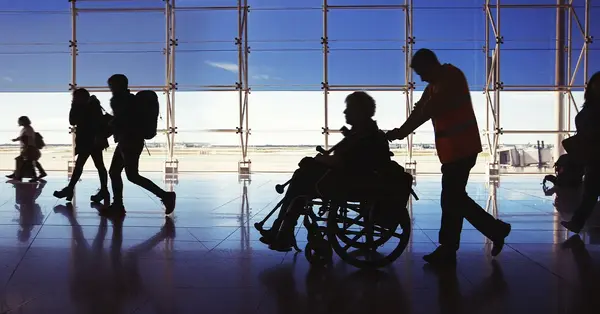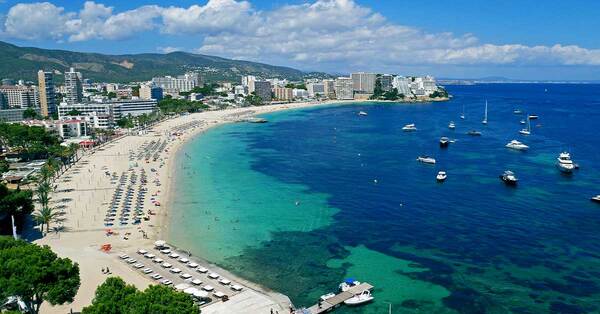Middle East unrest sparks client calls to change or cancel holidays
Travel agents have reported an increase in customer calls to amend or cancel holidays amid fears of a prolonged period of unrest in the Middle East.
Trade bodies and tour operators said they were keeping a watching brief on the Israel-Iran conflict following heightened tensions in the last week.
A claimed ceasefire by US president Donald Trump was in place on Tuesday after the US attacked Iranian nuclear sites on Sunday and Iran launched retaliatory strike against a US base in Qatar on Monday.
More: Qatar airspace reopens after Iranian missiles targeting US military base near Doha intercepted
A renewed series of Foreign Office warnings for multiple countries in the Middle East were issued yesterday (Tuesday) despite the ceasefire between Israel and Iran.
The updated travel alerts covered the risks of regional escalation in the Middle East and the instruction to “take shelter” if instructed.
Countries on the list produced by the Foreign, Commonwealth & Development Office (FCDO) included the United Arab Emirates, Bahrain, Jordan, Qatar, Saudi Arabia, Kuwait, Oman, Iraq and Yemen.
The FCDO reiterated previous advice that hostilities in the region and between Israel and Iran “have the potential to deteriorate further, quickly and without warning”.
“There is a possibility of travel disruption, including short-notice airspace closures, delayed and cancelled flights, and other unanticipated travel impacts,” the FCDO added.
The Travel Network Group chief executive Gary Lewis said some clients were reconsidering or postponing trips but insisted the impact on bookings was currently “limited”.
He said airspace disruption could impact flights and prices, particularly to Asia and the Middle East, and cited some increased interest in “safe or close to home” destinations.
More: Jordan creates help centre to support tourists amid regional conflict
He added: “Our priority is to ensure our members have access to timely, accurate information from trusted sources.”
He also urged airlines and hoteliers to “act responsibly” and not use the time as an opportunity to introduce “disproportionate price increases”.
Julia Lo Bue-Said, chief executive of the Advantage Travel Partnership, described the situation as “concerning times for everyone”, adding: “We recognise it is likely to cause some consumer anxiety.”
Experts including Association of Atol Companies advisor Alan Bowen said the conflict could lead to a shift towards western Mediterranean destinations, while agents said client calls had increased since the middle of last week.
Bowen said: “An awful lot of people have no sense of geography and no idea how close Egypt and Dubai are to Iran.”
Barton-Knott Travel received about 10 calls a day on Sunday and Monday from worried customers, including people who had not booked with the agency, and cancelled two bookings to Turkey this August as a result.
“People need reassurance,” said manager Rebecca Potter. “We tell them companies and the government don’t allow you to travel if it’s deemed unsafe.”
Inspire Europe chief executive Lisa Henning said the agency had received calls this week from clients “seeking clarity and reassurance” about bookings.
Beverley Travel co-owner Kelly Cheesman said some clients were willing to pay amendment fees of £1,000 to switch bookings from eastern Mediterranean to the western Mediterranean.
“We’ve had a handful of clients asking bookings; one has changed from Turkey to Portugal and another has moved from Turkey to Ibiza,” she said. “For many, a holiday is the biggest purchase in a year. That worry is understandable.”
Not Just Travel franchisee Gemma Outram said clients had cancelled a Dubai holiday in October while Idle Travel reported “quite a few calls” on Monday about holidays booked to Turkey, Cyprus, Greece and Egypt.
Director Tony Mann said: “This [uncertainty] could stop people going to that area and slow bookings but we are used to dealing with these situations.”
Marina Marsh, owner of The Holiday Shop, said the agency was working hard to reassure clients. “We’ve had a few really concerned customers and we try to put their minds at rest,” she said.
Operators said they were braced for short-notice schedule airline changes and demand shifts.
Intrepid said some clients had cancelled trips to Jordan but itineraries were unchanged. EMEA managing director Zina Bencheikh said: “We may see a shift away from the Middle East to destinations in Europe or farther afield.”
Cyplon Holidays, which operates to Cyprus, Egypt, Morocco, Tunisia, Jordan and Israel, noted a slowdown in new bookings but welcomed the ceasefire.
“Hopefully this will reassure people in proceeding with their holidays,” said managing director Harry Hajipapas.
Peter Kearns, executive director of Red Sea Holidays, said more clients had asked for assurances and predicted an inevitable impact on sales, but stressed: “UK customers are incredibly resilient.”
Noel Josephides, chairman of Sunvil, said cancellations had not materialised for Cyprus or Greece and said fuel surcharges were currently unlikely. “Thank goodness it seems to have quietened down,” he added.
Olympic Holidays managing director Reeva Kingston said: “In times like these, travellers increasingly recognise the value of booking with a reputable and established tour operator."
Owens Cooper consultant Andy Cooper noted the challenge facing operators forced to take a “wait and see” approach while also trying to make advanced calls on future programmes.
He urged the trade to dissuade clients from cancelling holidays but said operators to the Middle East region needed contingency plans in place.
“It’s almost a case of “wait and see” but tempered by a need to make decisions on programs before the last minute, which is a difficult place to be,” he admitted.
Abta said it was focused on supporting members and directing consumers to FCDO advice.
A spokesperson said: “Our focus right now is on supporting members and directing customers towards the FCDO travel advice. Situations like this are a reminder of how important the FCDO travel advice is for providing a clear and accurate picture on the impact of conflict on travel.”
The Specialist Travel Association (Aito) said its immediate concern was the impact on flights but highlighted the longer term fear of rising fuel prices and operators being expected to “absorb the costs.”
Christina Brazier, head of industry affairs, said: “The travel industry has demonstrated exceptional resilience over the years and is well used to adapting to changing circumstances. However, we remain concerned that, when disruption does occur, tour operators are often expected to absorb the costs.
“We therefore continue to urge the government to widen the scope of the Package Travel Regulations consultation in order to address the current imbalance, where responsibility is disproportionately placed on tour operators, whilst some suppliers and insurers are able to avoid their obligations.”
Emirates resumed regular schedule operations on Monday, saying: “Despite rapidly evolving regional developments, it’s been business as usual across our network. We’ve served more than 1.7 million passengers over the past two weeks, delivering certainty to their travel plans, and upheld our commitment to safe, reliable travel.”
The airline “took immediate action” by suspending flights only to areas directly impacted by conflict while maintaining operations to all other destinations.
Services to Amman and Beirut were briefly suspended but resumed quickly, “demonstrating Emirates’ ability to nimbly adapt its operations while prioritising safety, and helping thousands of families start their summer holidays”.


















